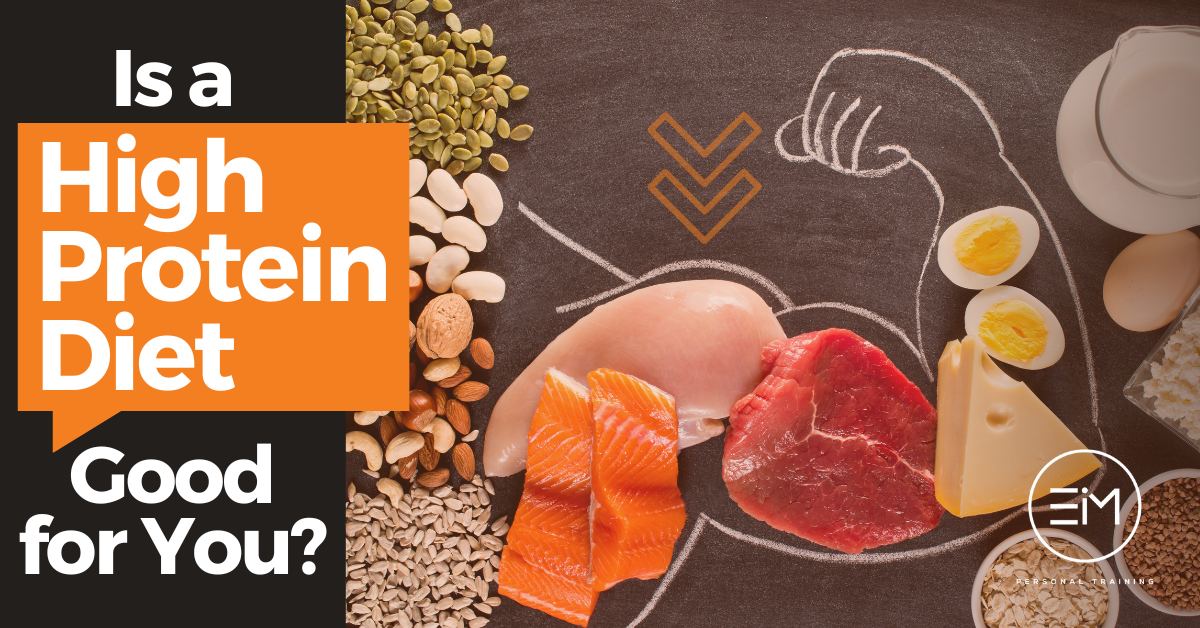When it comes to nutrition, there’s a lot of competing information out there that can leave you unsure about how you should be eating.
You may have even heard that a high protein diet can be harmful to your health, but unless you’re neglecting your other macros, the research says a protein-rich diet combines with an active lifestyle for great health outcomes.
Let’s break down the benefits of a protein-rich diet.
Protein Helps You Stay Lean
If your diet is heavier on protein, you’ll probably end up eating fewer calories overall.
Dietary protein helps to suppress the production of hormones directly responsible for appetite. It’s called ghrelin, and it’s one of the ways your body lets you know you’re hungry. You may be surprised to learn that carbonated drinks have the opposite effect – stimulating the production of ghrelin. If you’ve noticed that seltzer water seems to sharpen your appetite, it’s not just in your head.
Research has tied protein to much higher satiety compared to carbs and fats. That means choosing protein-rich foods over carb-heavy snacks is an easy way to cut your appetite and consume fewer calories long term.
Beyond just cutting appetite, protein also has the highest thermic effect of the macronutrients. In a nutshell, this means that protein passively burns more calories in digestion than carbs or fats. For weight loss, it’s the most efficient energy source.
If you’re actively cutting weight, you’ll be running a calorie deficit. That means it’s all the more important to maintain high protein in your diet. You want to be pulling from fat rather than muscle as your body drops the weight.
See Better Results in The Gym
A diet rich in protein will help you gain muscle faster and keep that muscle with less maintenance. The ACSM recommends getting 10-35% of your daily calorie intake from protein, which is a good range for both building and keeping muscle.
Obviously, if you’re working hard to build muscle you’ll need to provide your body with the raw materials to make it happen. Protein is that material. For those who do strength training, shoot for somewhere between .8 to 1.5 grams of protein per pound of body weight. As always, a consistent diet and consistent work in the gym will get you consistent results.
…And Faster Recovery Times
Intense exercise like weight training works by temporarily damaging muscle tissue, which will be built back stronger during your recovery period. Provided you eat enough protein. You’ll need a protein-rich diet to ensure that your recoveries are efficient and effective.
If you’ve suffered an acute injury this works the same way. A protein-rich diet means a faster recovery time as your body does the important work of healing the injured area.
In either case, make protein available for your body to recover naturally.
Build Better Bone Health
A high protein diet correlates with better bone health.
This is especially important for individuals interested in maintaining fitness as they age. The risk of developing osteoporosis and the risk of bone fracture amplifies with age, so you can think of a protein-rich diet as another approach to preventative medicine you can use to guard against the risks that come with aging.
With post-menopausal women, in particular, those risks are particularly serious. Consider a regimen of vitamin D and Calcium supplements along with a diet rich in protein to help your bones stay healthy into advanced age.
Can A High Protein Diet Hurt You?
A protein-rich diet really means a well-balanced diet.
There’s no one size fits all solution for nutrition, so athletes can expect to see better results with more protein than a sedentary individual. In both cases, it’s absolutely essential to balance that protein intake with plenty of fiber-rich carbs and fats. Those are critical for your digestive and renal health. Know what balance means for you and your situation, though.
In some extreme cases, a high protein diet can be dangerous. People with existing kidney issues or renal dysfunction should take extra care to balance their diet, as a very high protein diet can be difficult on the kidneys. As always, reach out to your personal physician before you make any changes to your diet or lifestyle.
Ready to Take Your Fitness Journey to the Next Level?
Reach out to the experts at EIM for a personalized plan to meet your fitness goals.

